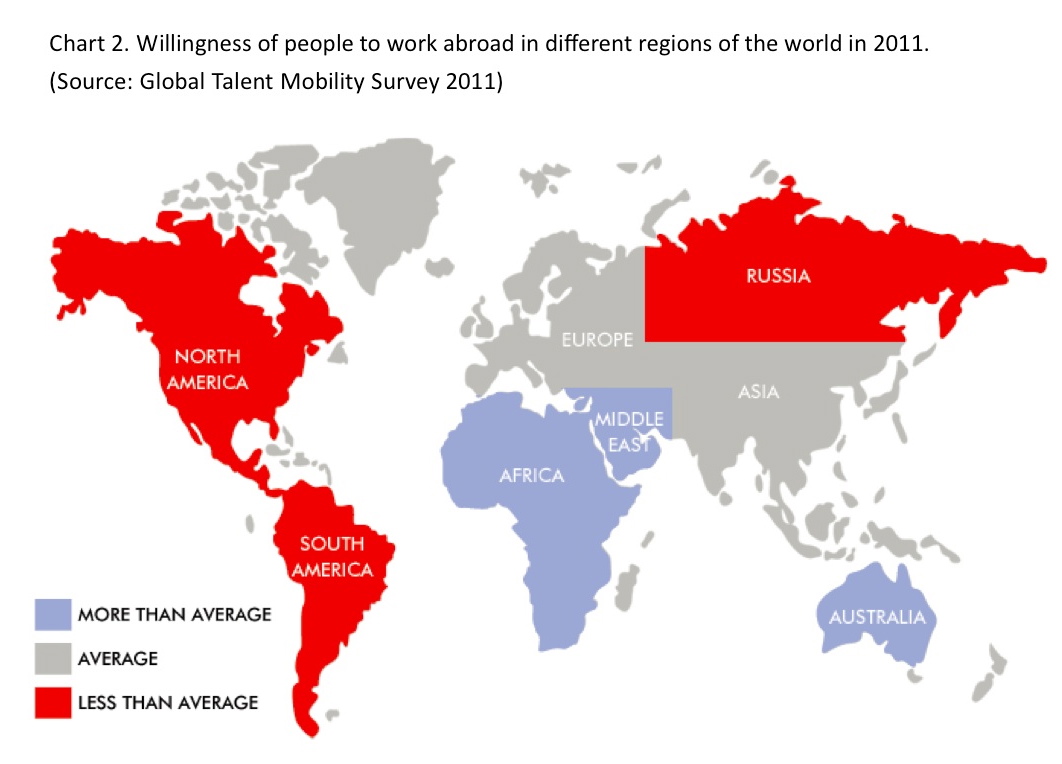A lower-middle-class American ponders the things others might do with his money.
Friday, November 22, 2013
Interlude VI - Competition for Everyone
According to Richard B. Freeman (2008), "almost all at once in the 1990s, China, India, and the former Soviet bloc joined the global economy, and the entire world came together into a single economic world based on capitalism and markets." Describe two (2) important effects this development has had on the global labor market.
After the collapse of the Soviet Union, the joining of that area's workers, along with those of India and China, into the global work force had the immediate effect of increasing competition around the world for many of the simplest and most portable jobs. Market capitalism had been great for the West, in particular the United States, in the years after World War II. Before the war, no middle class existed in the US and so much money was concentrated in so few hands that the entire economy was susceptible to the disaster of the Great Depression--what was a bad turn of events for the wealthy meant unmitigated devastation for the poor, who depended upon the upper class for their employment, and upon the banks for their savings. After the war, new industries existed that served to boost more people up to genuine self-sufficiency than had ever before been the case, which combined with all-time-high taxes on the highest incomes to create the most equal society (at least financially) the US had ever experienced. Once the global labor market opened up in the nineties, however, the finite number of jobs offered by those new industries faced a vastly-increased pool of workers. The United States had pioneered a lot of the technology of globalization, and now that technology was making it harder and harder to justify leaving a basic, low-to-moderate-skill job in the same city as a company's headquarters when there were people on the other side of the planet willing to do it for far less, because a generation ago they were picking rice for a living. Market competition was the thing that created the United States' successful economy in the first place, so it made sense that if Company A only hired middle-class Americans and Company B hired destitute Indians and Chinese, Company B would be the winner of that competition, and thus you'd start seeing more of that in the future.
The second effect of this increased competition was the lowering of wages for those jobs that did remain in the United States. Even companies that preferred at first not to outsource their jobs overseas felt economic pressure from those that did, and whose operating costs were therefore lower) and were motivated to lower their wages nevertheless. Also, more unemployed American workers means higher competition for those few jobs, and once again, lower wages. Of course, this was only a problem in the West; while these new workers in the East were theoretically open to all sorts of exploitative business practices due to their desperation, the immediate effect of their sudden employment was indeed higher levels of income, and a large boost to those countries' urban areas as more and more people moved away from their farms. Time will tell, but in my opinion, workers in the East are going through a process similar to what happened in the United States after the Great Depression; now that work is available, they will become higher-skilled and better-educated, leading to yet higher wages until they eventually catch up with the West, thereby eliminating the impetus for outsourcing as a cost-saving venture and leading to a "genuinely integrated world economy", as Professor Hoberman describes it.
Labels:
age of globalization
Subscribe to:
Post Comments (Atom)

No comments:
Post a Comment